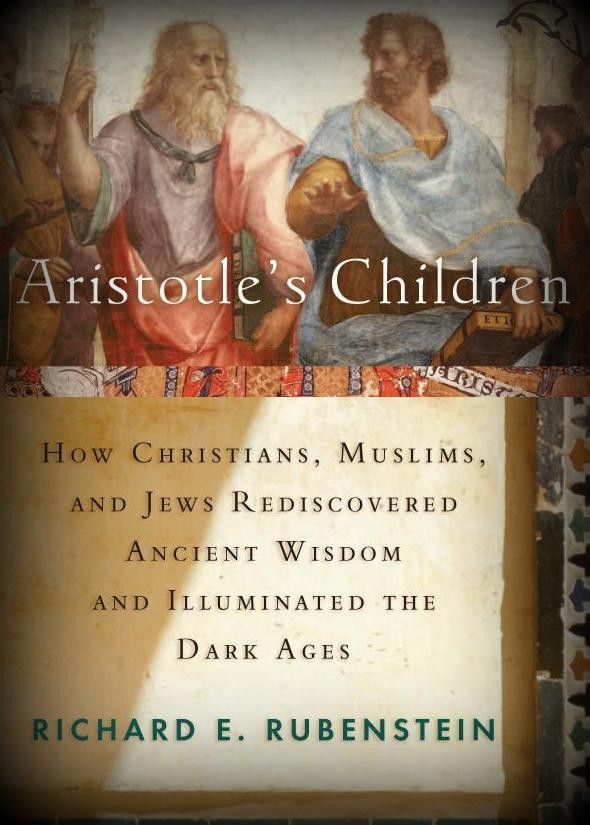|
Aristotle's Children: How Christians, Muslims, and Jews Rediscovered Ancient Wisdom and Illuminated the Middle Ages
By Richard E. Rubenstein Published in 2002 389 Pages Thibault’s Score: 4/5 I read Aristotle’s Children as part of my ongoing studies of Islam in the Middle Ages. When I picked up the book, I thought it would be similar to the House of Wisdom and cover Islamic Golden Age thought. Instead, this book discusses the transmission of Aristotle’s works throughout the Middle Ages. Instead, Islam is only mentioned in passing. Despite this, I thought that Aristotle’s Children made for a great read, especially for people interested in the history of philosophy. I’ve not read very much Aristotle - the only text attributed to Aristotle that I’ve finished is Politics. Reading Aristotle’s Children helped re-familiarize myself with Aristotle’s works, and better understand the history of his writing. There are two particularly stunning insights that Rubenstein lays out in the introduction. Both insights kept repeatedly hitting me over and over throughout the book, and have reshaped my way of thinking about philosophical and scientific progress. The first is the idea of a “monolith.” There is a common trope in sci-fi movies, such as 2001 Space Odyssey, where humans find artifacts from a more ancient advanced alien civilization. These artifacts enable humans to progress rapidly technologically. The reason why these stories resonate so strongly is because they actually happened. In the past, technological progress was not linear. Instead, there were pits and downturns. When people, during one of these long term technological downturns, rediscover the ancient works of an author such as Aristotle, they have their own “monolith moments.” The most obvious examples being the Islamic Golden Age’s translation movement and the Italian Renaissance where interest in the ancient classics was revived. The second revelation was that the Catholic church has promoted, rather than opposed, historical progress. In modern pop culture, we imagine a dichotomy where the religious authorities are opposed to scientific and technological progress. This idea, however, only comes from the post-reformation world where reactionary protestants and Catholic Jesuits actively fought change. By contrast, in the Middle Ages, much of the progress came from the church itself. The great thinkers of the Middle Ages and Renaissance were funded, promoted, and endorsed by the church. A similar parallel phenomenon existed at the same time in the Islamic world, where the secular authorities and religious scholars worked together to promote the Islamic golden age. Each chapter is written as a little history of a major thinker who supported or opposed Aristotelean thought. The book opens with a biography of Aristotle himself, and a cursory summary of his thoughts and writings. It then covers the lives and thoughts of later thinkers such as Boethius, St. Augustine, Peter Abelard, and St. Thomas of Aquinas. What I found to be the most fascinating was Rubenstein’s description of the loss and regaining of Aristotelian knowledge. At times, his work had slipped into obscurity, with all but his most famous tracts forgotten. Later, Aristotle would be placed on a pedestal, blindly followed by scholars regardless of the actual merits of his ideas. It really goes to show that the authors of the past we remember today are different to those remembered in forgone days. Another aspect I found fascinating was how various political and intellectual movements throughout medieval Europe would either support or reject Aristotle. Late in the Middle Ages, there would be significant intellectual battles fought in the universities of France and England over the degree to which Aristotle should be embraced or rejected. Overall, this is a fascinating read. I recommend it to people interested in the history of philosophy, or to people doing a more in depth study of the Middle Ages.
0 Comments
Leave a Reply. |
Thibault SerletMost of my articles are book reviews, but I also write about many other topics. Archives
December 2023
Categories |

 RSS Feed
RSS Feed